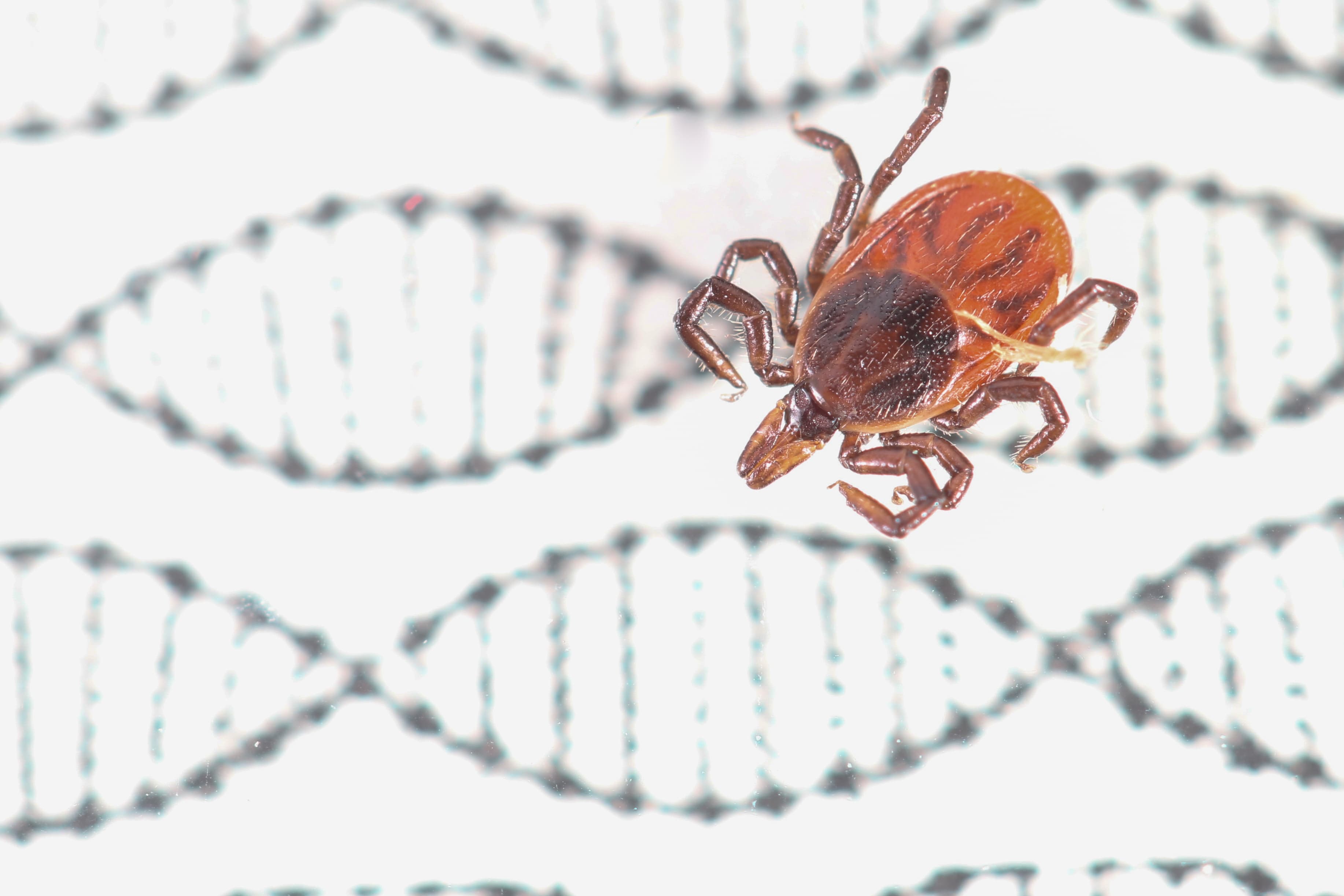Collaborative research involving scientists from the University of Maryland (UMD) led to a discovery that could decrease the public health threat of tick-borne diseases like Lyme.
Researchers uncovered a new method that allows for gene editing in ticks at the embryo stage—a process previously thought impossible for ticks. The results, published February 15 in iScience, could diminish the ability of ticks to serve as vectors for disease and pathogen transition.
Funded by the National Institutes of Health, the research collaboration was led by Monika Gulia-Nuss and Andrew Nuss at the University of Nevada, Reno, and involved Robert Harrell, Director of the Insect Transformation Facility, an international resource for the genetic modification of insects located at UMD’s Institute for Bioscience and Biotechnology Research (IBBR), as well as Jason Rasgon at The Pennsylvania State University.
The researchers successfully carried out targeted gene disruption in ticks through two CRISPR gene-editing methods: embryo injection and Receptor-Mediated Ovary Transduction of Cargo (ReMOT Control), a less labor-intensive method of gene-editing first developed in insects by the Rasgon lab. Harrell, an expert in insect genetic modification and insect embryo injections, led the effort to find appropriate injection conditions for tick embryos.
“The delivery of genetic modification components into tick embryos is just the first step. The next steps are to further develop the genetic tools for really answering biologically significant questions about host-pathogen interaction,” said Harrell. “The technique developed here will allow us to probe the interaction between the bacteria that causes Lyme disease and the tick host.”
While Lyme disease is the most common tick-borne disease, there are at least 20 different infections that are transmitted by ticks in the U.S. Approximately 476,000 Americans are diagnosed and treated for Lyme each year and the number of areas where ticks are found are increasing.
“Ticks are a public health nuisance. They transmit so many pathogens that can cause diseases in humans, companion animals and wild animals,” said Gulia-Nuss, faculty member in UNR’s College of Agriculture, Biotechnology & Natural Resources. “If we understand the [tick] vectors better, we can probably find ways to control them as well, either through new attractants, repellents, pesticides, vaccines or drug development.
About IBBR
IBBR is a joint research enterprise of the University of Maryland, College Park, the University of Maryland, Baltimore, and the National Institute of Standards and Technology (NIST). IBBR brings together critical elements necessary to inspire transformative discoveries in the field of bioscience and biotechnology and provides innovative solutions to major scientific and engineering challenges important to society. IBBR researchers seek to advance the fields of biomedical research, therapeutic development, biomedical manufacturing, and state-of-the-art measurement technologies, to support accelerated delivery of safe and effective medicines to the public. IBBR is financially support in part by the University of Maryland Strategic Partnership: MPowering the State, an initiative designed to achieve innovation and impact through collaboration.
A Platform for Insect Genetic Modification
IBBR’s Insect Transformation Facility (ITF) leverages broad and deep knowledge and expertise in insect genetic technologies to meet the demands of insect scientists. The ITF provides access to functional genomics technologies that have arisen during an ongoing revolution in genomics and made insect genome sequence data abundant and inexpensive to obtain. The ITF provides technical services that include delivery by microinjection of insect genetic technologies for genome modification to the soma and germ-line of insects; screening services for genetically modified insects; genetically modified insect line development; and validation. Trainings to groups and individuals are available in all phases of the process of producing genetically modified insects. In addition, the ITF consults with investigators who are planning and executing their own projects to produce genetically modified insects, including best practices for reagent design and delivery, line establishment and validation.
For more information, contact:
Nicole Tenly
Institute for Bioscience and Biotechnology Research
University of Maryland
9600 Gudelsky Drive | Rockville, MD | 20850
tenlyn@umd.edu | 240.314.6209

